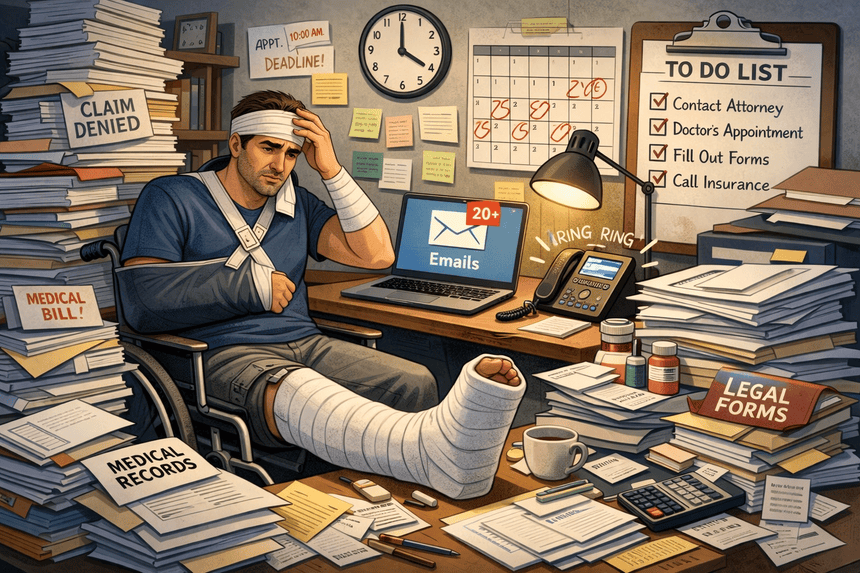Dealing with domestic violence is a traumatic and overwhelming experience. Whether you’re a victim seeking protection or someone accused of a domestic violence offence, the legal system can feel confusing and intimidating. In such emotionally charged circumstances, having the right legal support is not just helpful—it’s essential. Hiring a qualified domestic violence lawyer can make a significant difference in the outcome of your case and your peace of mind throughout the process.
Queensland law treats domestic violence matters with utmost seriousness. The complexity of the legal proceedings, coupled with the high emotional stakes, makes it crucial to work with domestic violence lawyers QLD who are experienced in handling these sensitive cases. This guide is designed to walk you through everything you need to know when hiring a domestic violence lawyer in Queensland, so you can make an informed decision and get the help you need.
Understanding Domestic Violence Laws in Queensland
Domestic violence laws in Queensland are governed by the Domestic and Family Violence Protection Act 2012. This legislation provides protections to individuals experiencing abuse in their personal relationships. Abuse can be physical, emotional, psychological, sexual, or financial. The law aims to prevent future acts of violence and protect victims by issuing Domestic Violence Orders (DVOs).
There are two types of DVOs: temporary and final. A temporary DVO provides immediate but short-term protection, while a final DVO may last up to five years or longer, depending on the circumstances. In cases where the victim feels at risk, these orders can be fast-tracked through the court.
Why You Need a Domestic Violence Lawyer
Hiring a domestic violence lawyer is not just about representation in court. A good lawyer will:
-
Explain your legal rights and options.
-
Guide you through the process of obtaining or contesting a DVO.
-
Help gather evidence and prepare documentation.
-
Represent you during court hearings.
-
Negotiate terms on your behalf.
-
Ensure that you’re treated fairly throughout the legal process.
For those accused of domestic violence, having a lawyer is critical to ensuring your side of the story is heard and that your legal rights are not infringed upon. A conviction can have lifelong implications—loss of custody rights, employment limitations, and even criminal charges—so expert legal defence is vital.
Qualities to Look for in a Domestic Violence Lawyer
Not all lawyers are created equal. When you’re dealing with something as sensitive as domestic violence, it’s important to find someone who not only has legal expertise but also shows empathy and understanding. Here are some key qualities to look for:
-
Experience in Domestic Violence Cases
Make sure the lawyer has a solid background in handling domestic violence matters. Ask how many similar cases they’ve taken and what outcomes were achieved. -
Familiarity with Queensland Law
Laws vary from state to state, so your lawyer should be well-versed specifically in Queensland’s legal framework. -
Strong Communication Skills
Your lawyer should explain complex legal terms in a way that you understand. They should also keep you informed about your case’s progress. -
Empathy and Discretion
Domestic violence cases often involve sharing personal and painful details. A good lawyer will treat you with respect, compassion, and confidentiality. -
Availability and Accessibility
Your lawyer should be someone you can reach when you need advice or support. Legal processes often move quickly, and timely communication is crucial.
Where to Find Domestic Violence Lawyers in Queensland
Finding a reputable lawyer can seem daunting, but there are several reliable avenues you can explore:
-
Legal Aid Queensland – Offers free legal advice and representation to those who qualify financially.
-
Queensland Law Society – Their website provides a ‘Find a Solicitor’ tool to locate lawyers based on specialty and location.
-
Community Legal Centres (CLCs) – Provide free or low-cost legal services across Queensland.
-
Online Reviews and Referrals – Reading client testimonials or getting referrals from trusted sources can also help in choosing the right lawyer.
Don’t just settle for the first name that comes up in a search. Schedule a consultation with a few lawyers, ask questions, and trust your instincts when deciding who to work with.
Cost of Hiring a Domestic Violence Lawyer
Legal fees can vary significantly based on the complexity of your case and the lawyer’s experience. Many private lawyers charge hourly rates, while some offer fixed-fee services for certain parts of the legal process. If cost is a concern, check if you qualify for Legal Aid or inquire whether the lawyer offers payment plans.
During your initial consultation, ask for a clear breakdown of fees and get everything in writing. Transparency around costs will help avoid misunderstandings later.
Preparing for Your First Meeting
To make the most of your initial consultation, come prepared. Bring:
-
Any legal documents related to your case (e.g., DVOs, police reports, court summons).
-
A written account of incidents (dates, times, details).
-
A list of questions or concerns you want to discuss.
Being well-prepared not only saves time but also gives your lawyer a better understanding of your situation from the get-go.
Conclusion
Navigating a domestic violence case is incredibly challenging, both legally and emotionally. But you don’t have to do it alone. With the right legal support from experienced domestic violence lawyers QLD, you can take back control, protect your rights, and find a path forward. Whether you’re seeking protection or defending yourself against accusations, the lawyer you choose will play a pivotal role in the outcome of your case. Make your choice wisely, and don’t be afraid to reach out for help—you deserve justice and peace of mind.









